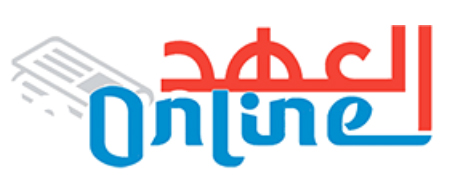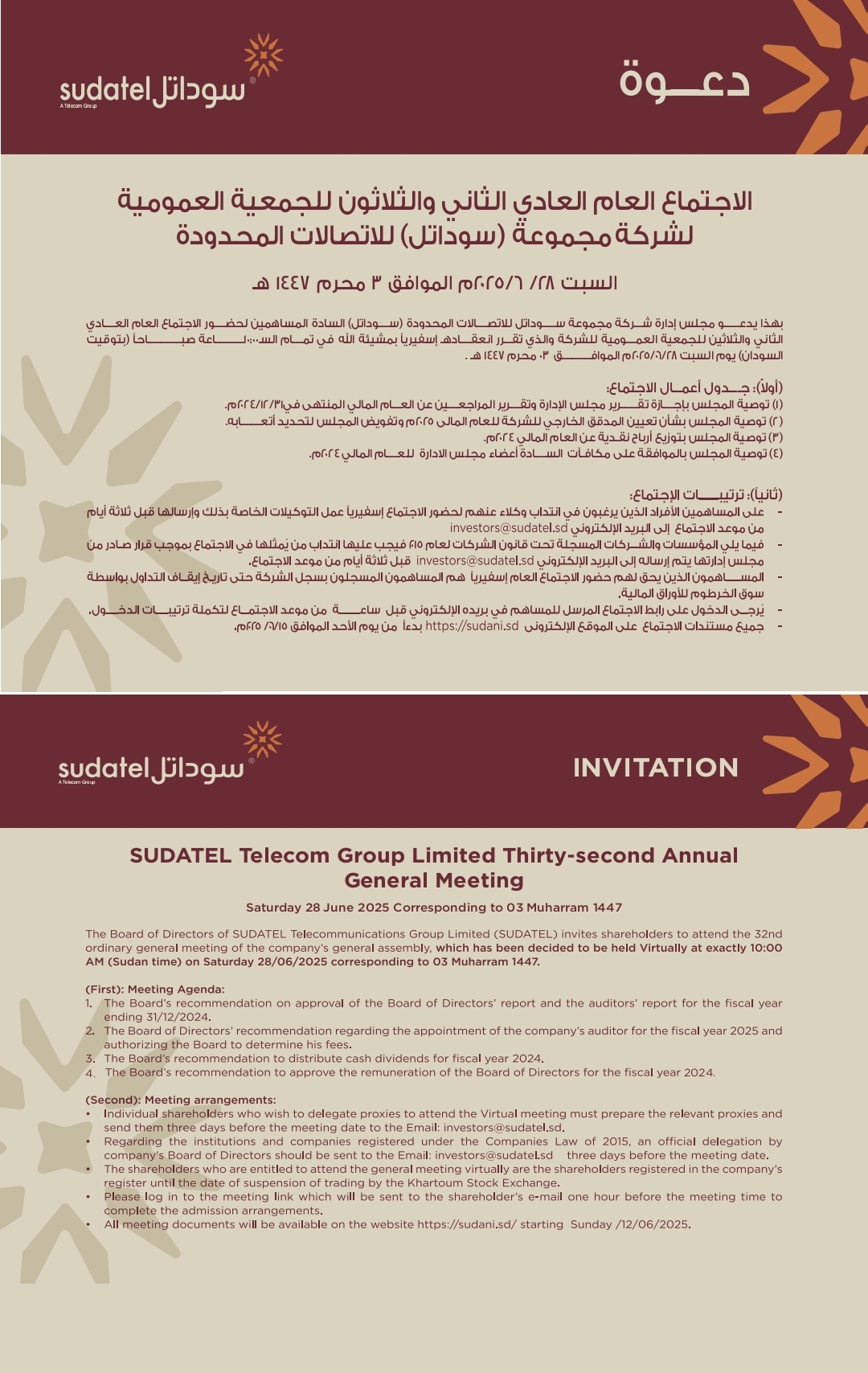د. محمد يوسف قباني يكتب: المساعدات الإنسانية: من حالة طارئة إلى نمط دائم يُغذي التواكل ويفرض ثقافة الاتكالية على المستوى الرسمي والاجتماعي .. مقاربة واعية نحو التعافي الذاتي في السودان .. Humanitarian Aid: From an Emergency to a Permanent Pattern that Feeds Interdependence and Imposes a Culture of Dependence at the Official and Social Levels… A Conscious Approach to Self-Recovery in Sudan…* Dr. Mohamed Elgabbani..

د. محمد يوسف قباني يكتب: المساعدات الإنسانية: من حالة طارئة إلى نمط دائم يُغذي التواكل ويفرض ثقافة الاتكالية على المستوى الرسمي والاجتماعي .. مقاربة واعية نحو التعافي الذاتي في السودان ..
Humanitarian Aid: From an Emergency to a Permanent Pattern that Feeds Interdependence and Imposes a Culture of Dependence at the Official and Social Levels… A Conscious Approach to Self-Recovery in Sudan…*
Dr. Mohamed Elgabbani..
في ظل الأزمات المتلاحقة التي يشهدها السودان، تحوّلت المساعدات الإنسانية من استجابة طارئة إلى نمط دائم، يُغذي التواكل ويفرض ثقافة الاتكالية، دون أن يُرافق ذلك أي أفق استراتيجي للتعافي الذاتي أو بناء القدرات المحلية. هذه الظاهرة، التي بدأت كضرورة إنسانية، باتت اليوم تُشكّل تحدياً بنيوياً يُهدد مستقبل البلاد ويُعيق أي مسار نحو الاستقلال الاقتصادي والاجتماعي.
منذ اندلاع النزاعات المسلحة وتفاقم الأزمات السياسية والاقتصادية، أصبح السودان من أكثر الدول اعتماداً على المساعدات الخارجية. ومع مرور الوقت، لم تعد هذه المساعدات تُقدّم كاستجابة مؤقتة لحالة طارئة، بل تحوّلت إلى ركيزة شبه دائمة في حياة ملايين السودانيين. وبينما يُفترض أن تكون المساعدات كيفية للنجاة المؤقتة، فإنها أصبحت في كثير من الأحيان غاية بحد ذاتها، تُكرّس التبعية وتُضعف روح المبادرة المحلية.
لطالما تعلقت المساعدات الإنسانية بالكوارث المفاجئة،
كالزلازل، الفيضانات، أو النزاعات المسلحة، حيث كانت تتخذ طابعاً استجابياً سريعاً لإنقاذ الأرواح وتلبية الاحتياجات الأساسية. ومع تكرار الأزمات واستمرارها لفترات طويلة، لم تعد الاستجابات قصيرة المدى كافية، فبدأت المنظمات الإنسانية الدولية والمحلية في تبني نهج أكثر استدامة، يهدف إلى بناء أنظمة توزيع دائمة تشمل الغذاء، الصحة، التعليم، وحتى البنية التحتية.
هذا التحول، رغم أنه يعكس تطوراً مهماً في فلسفة العمل الإنساني، إلا أنه أثار العديد من التحديات، خصوصاً فيما يتعلق بتأثيره على المجتمعات المحلية. إذ أن استمرار
تدفق المساعدات دون اتساقها بالتنمية الذاتية قد يؤدي إلى نتائج عكسية، أبرزها ضعف الحافز المحلي للإنتاج. فمع توفر الأغذية عبر برامج الإغاثة، يتراجع الاستثمار في الزراعة المحلية، وقد يشعر السكان بعدم الحاجة إلى تطوير إمكاناتهم الاقتصادية.
في بعض الحالات، أدى هذا النمط من المساعدات إلى ترسيخ ثقافة الاتكالية، حيث تنتظر المجتمعات الدعم الخارجي بدلاً من المبادرة الذاتية. كما أن دخول سلع مجانية أو منخفضة التكلفة إلى الأسواق المحلية يشوّه المنافسة ويضر بالمنتجين المحليين الذين لا يستطيعون مجاراة الأسعار أو الكميات المعروضة.
لكن في المقابل، لا يمكن إنكار الفوائد الكبرى التي قد تنجم عن هذا التحول إذا ما تم بطريقة مدروسة وشاملة. فالمساعدات المستدامة يمكن أن تشكل رافعة حقيقية للتنمية، إذا تعلقت بدعم الإنتاج المحلي، ونقل المعرفة، وبناء القدرات. إشراك المجتمعات في تصميم وتنفيذ البرامج يعزز الشعور بالمسؤولية والملكية، مما يُوجد بيئة أكثر استعداداً للنمو الذاتي.
إن التحدي الحقيقي لا يكمن في تقديم المساعدات بحد ذاتها، بل في كيفية توظيفها كأداة تمكّن المجتمع من الاعتماد على نفسه على المدى البعيد. المطلوب هو دمج الاستجابة الإنسانية مع استراتيجيات التنمية، بما يضمن عدم التحول من حالة الطوارئ إلى حالة دائمة من التبعية. وتبقى المساعدات الإنسانية ضرورة لا غنى عنها في مواجهة الأزمات، لكنها أيضاً فرصة لبناء مستقبل أكثر استدامة وعدالة، إذا ما تم إدارتها بحكمة وبتعاون فعّال بين الجهات المانحة والمجتمعات المستفيدة.
تحوّل المساعدات الإنسانية من استجابة طارئة إلى تقديم خدمات دائمة، وإن كان يحمل نوايا طيبة، قد يفضي إلى ظواهر غير مقصودة، من أخطرها تآكل مؤسسات الدولة. وفي هذا السياق، يمكن القول إن المنظمات غير الحكومية، بفضل تمويلها الضخم وسرعة استجابتها، أصبحت تؤدي أدواراً كانت من صلب مسؤوليات الحكومات: كالتعليم، والصحة، وتوفير المياه، وحتى إدارة مشاريع البنية التحتية.
هذا الوضع، رغم أنه أنقذ حياة الكثيرين ولبّى حاجات ملحّة، إلا أنه أضعف قدرة الدولة على استعادة دورها كمقدم أساسي للخدمات، وأخلّ بعقد الثقة بينها وبين مواطنيها. فالمواطن الذي يرى أن الخدمات تأت من منظمة دولية أو محلية ممولة خارجياً، قد يفقد الإيمان بجدوى مؤسسات بلده، ويعزف عن المطالبة بتطويرها أو محاسبتها.
كما أن هذا الاعتماد المفرط على المنظمات غير الحكومية قد يُوجد نوعاً من التنافس غير العادل، حيث تجد الوزارات والهيئات الحكومية نفسها عاجزة عن مجاراة سرعة وكفاءة تلك المنظمات، بسبب التعقيدات الإدارية أو ضعف الموارد، مما يؤدي إلى مزيد من التهميش لدور الدولة.
ولمواجهة هذا التآكل المؤسساتي، لا بد من مقاربة مختلفة تقوم على دمج أدوار المنظمات مع الاستراتيجيات الحكومية، عبر بناء شراكات طويلة الأمد، ونقل الخبرات، وتطوير القدرات المحلية. الهدف ليس إقصاء المنظمات، بل تحويلها إلى داعم لدور الدولة، لا بديلًا عنه.
في العديد من السياقات التي تشهد صراعات طويلة الأمد، تحوّلت المساعدات الإنسانية من كيفية لإنقاذ الأرواح إلى أداة تُوظّف ضمن حسابات سياسية وعسكرية دقيقة. ما كان يُفترض أن يكون عملاً إنسانياً حيادياً، بات يُستخدم من قبل أطراف النزاع لتحقيق مكاسب أو فرض شروط، وهو ما يُعرف بتسييس الإغاثة.
أطراف النزاع قد تضع يدها على المساعدات وتستخدمها كورقة ضغط على السكان، فتوزّع الغذاء والدواء وفق الولاءات أو تمنع وصوله إلى مناطق الخصوم. وقد يتم احتجاز قوافل الإغاثة أو التحكم في توزيعها بما يخدم أجندات سياسية، مما يجعل السكان بين نارين: الحاجة إلى المساعدة والخضوع لابتزاز القوى المسيطرة. هذا التسييس لا يُضعف فقط الحياد الإنساني، بل يُعرّض حياة المدنيين للخطر، ويقوّض مبادئ العدالة التي يفترض أن تُوجّه العمل الإغاثي.
بل إن بعض الحكومات أو الجماعات المسلحة قد تستخدم المساعدات كأداة دعائية، فتُظهر نفسها كجهة راعية رغم أنها طرف في النزاع، الأمر الذي يُربك الجهات المانحة ويضع المنظمات الإنسانية في موقف حرج بين الحياد والمساءلة الأخلاقية.
التصدي لتسييس المساعدات يتطلّب شفافية عالية، ورقابة مستقلة، واستراتيجية توزيع قائمة على مبادئ الإنسانية وعدم التمييز. كما يتوجب على المنظمات الدولية أن تتفاوض بحذر، وتُقيّم الوضع الميداني باستمرار، لتجنّب الانخراط غير المباشر في الصراع القائم.
Amid the successive crises facing Sudan, humanitarian aid has shifted from an emergency response to a permanent pattern, fueling dependency and imposing a culture of reliance, without any strategic horizon for self-recovery or local capacity building. This phenomenon, which began as a humanitarian necessity, has now become a structural challenge that threatens the country’s future and hinders any path
toward economic and social independence.
Since the outbreak of armed conflicts and the escalation of political and economic crises, Sudan has become one of the countries most dependent on foreign aid. Over time, this aid has ceased to be a temporary response to an emergency, but has become a semi-permanent pillar in the lives of millions of Sudanese. While aid is supposed to be a means of temporary survival, it has often become an end in itself, perpetuating dependency and weakening local initiative.
Humanitarian aid has always been associated with sudden disasters, such as earthquakes, floods, or armed conflicts, where it has taken on a rapid response nature to save lives and meet basic needs. With the recurrence and prolonged duration of crises, short-term responses are no longer sufficient. International and local humanitarian organizations have begun to adopt a more sustainable approach, aiming to build permanent distribution systems that include food, health, education, and even infrastructure.
This shift, while reflecting an important evolution in the philosophy of humanitarian action, has raised many challenges, particularly regarding its impact on local communities. The continued flow of aid without alignment with self-development can lead to counterproductive results, most notably a weakening of local incentives for production. With food available through relief programs, investment in local
agriculture declines, and residents may feel less compelled to develop their economic potential.
In some cases, this pattern of aid has entrenched a culture of dependency, with communities relying on external support rather than self-initiative. Furthermore, the entry of free or low-cost goods into local markets distorts competition and harms local producers who cannot keep up with prices or quantities offered.
However, the significant benefits that can result from this transformation, if implemented in a thoughtful and comprehensive manner, cannot be denied. Sustainable aid can be a true lever for development, if it supports local production, transfers knowledge, and builds capacity. Involving communities in the design and implementation of programs enhances a sense of responsibility and ownership, creating an environment more conducive to self-growth.
The real challenge lies not in providing aid itself, but in how to use it as a tool that enables communities to become self-reliant in the long term. What is required is to integrate humanitarian response with development strategies, ensuring that emergency situations do not shift to a permanent state of dependency. Humanitarian aid remains an indispensable necessity in the face of crises, but it is also an opportunity to build a more sustainable and just future, if managed wisely and with effective cooperation between donors and beneficiary communities.
The shift from emergency response to permanent service provision, even with good intentions, can lead to unintended consequences, the most dangerous of which is the erosion of state institutions. In this context, it can be said that NGOs, thanks to their massive funding and rapid response, have begun to perform roles that were once the core responsibilities of governments: education, health, water provision, and even infrastructure project management.
This situation, while saving many lives and meeting urgent needs, has weakened the state’s ability to regain its role as the primary service provider and undermined the trust between the state and its citizens. Citizens who perceive services as coming from an international or local organization funded externally may lose faith in the effectiveness of their country’s institutions and refrain from demanding their development or accountability.
This overreliance on NGOs may also create unfair competition, as government ministries and agencies find themselves unable to keep up with the speed and efficiency of these organizations due to administrative complexities or limited resources, leading to further marginalization of the state’s role.
To confront this institutional erosion, a different approach is needed, one based on integrating the roles of organizations with government strategies by building long-term partnerships, transferring expertise, and developing local capacities. The goal is not to marginalize organizations, but rather to transform them into a supporter of the state’s role, not a substitute for it.
In many contexts of protracted conflict, humanitarian aid has transformed from a means of saving lives into a tool employed within precise political and military calculations. What was supposed to be a neutral humanitarian effort is now being used by parties to the conflict to achieve gains or impose conditions, a phenomenon known as the politicization of relief.
Parties to the conflict may seize aid and use it as a means of pressure on the population, distributing food and medicine according to loyalties or preventing access to areas
controlled by their adversaries. Aid convoys may be detained or their distribution controlled to serve political agendas, leaving populations caught between a need for assistance and a vulnerability to the blackmail of the controlling powers. This politicization not only undermines humanitarian neutrality, but also endangers civilian lives and undermines the principles of justice that are supposed to guide relief work.
Some governments or armed groups may even use aid as a propaganda tool, presenting themselves as a benefactor despite being parties to the conflict. This confuses donors and places humanitarian organizations in a difficult position between neutrality and ethical accountability.
Combating the politicization of aid requires high transparency, independent oversight, and a distribution strategy based on the principles of humanity and non-
discrimination. International organizations must also negotiate carefully and continually assess the situation on the ground to avoid indirect involvement in the ongoing conflict.









